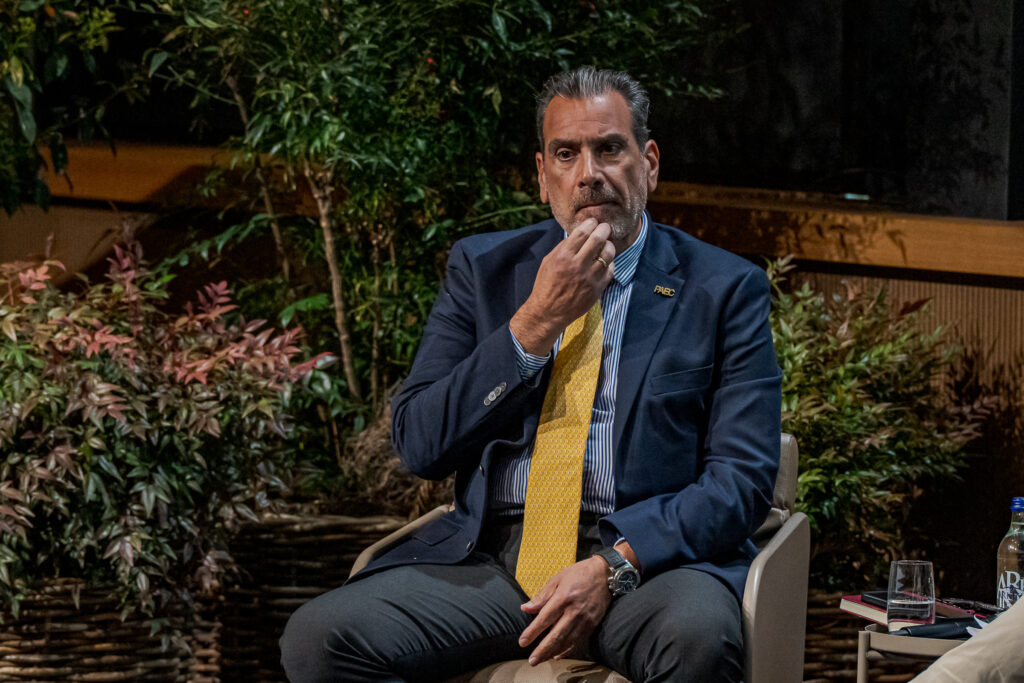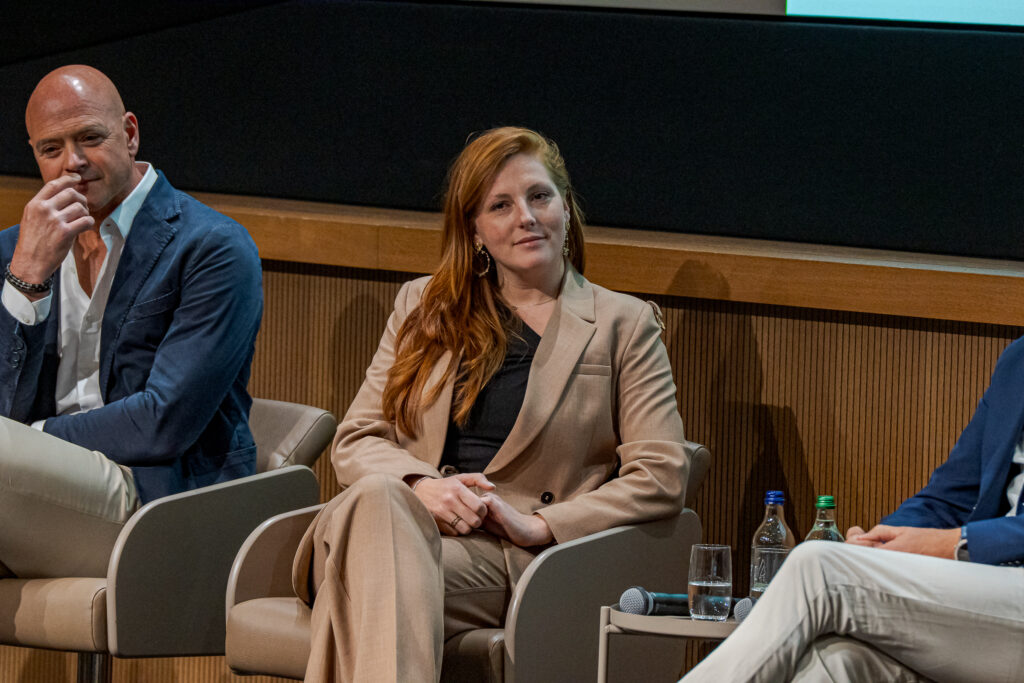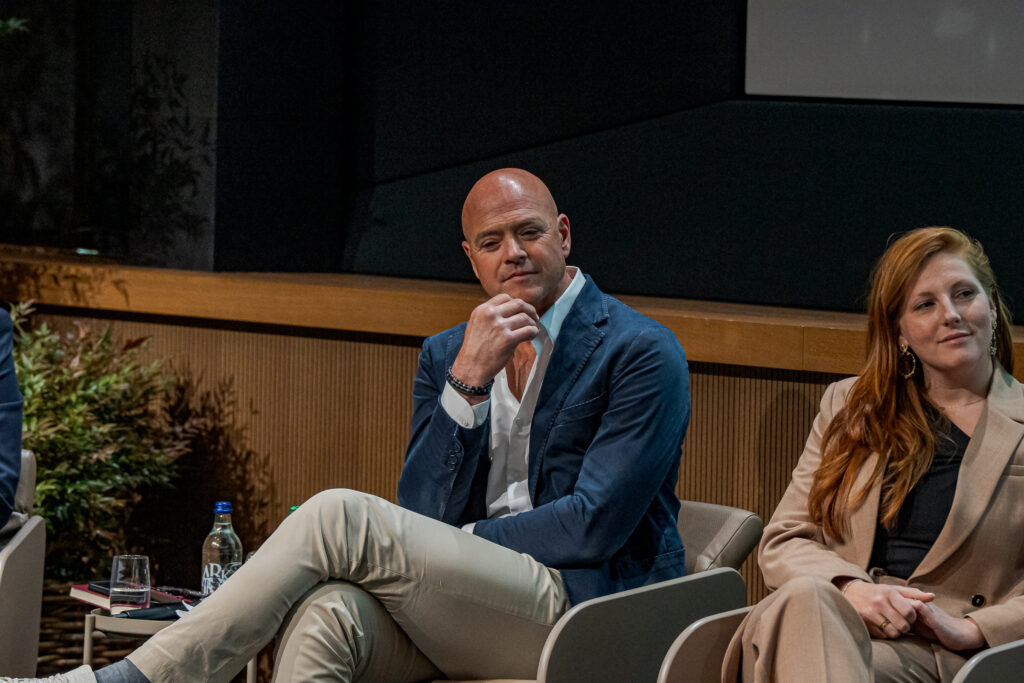FEI Sports Forum 2025: Panel Tackles Jumping Rule Overhaul With Welfare in Focus
The session was named FEI Jumping Rules full revision but actually contained an open session with a few selected topics and the panel was invited for discussion as was the floor.
Moderator Jessica Kürten
Panel on stage
Todd Hinde (AUS) – FEI Jumping Director
Stephan Ellenbruch (GER) – FEI Jumping Chair
Francois Mathy Jr (BEL) – IJRC President
Henrik Ankarcrona (SWE) – SWE Chef dÈquipe / NF
Cesar Hirsch (VEN) – FEI Judge L4, FEI Steward L4, PAEC President
Irene Verheul (NED) – Jumping Amsterdam (Organiser)
The fourth session of the 2025 FEI Sports Forum turned the spotlight on the full revision of the FEI Jumping Rules, drawing impassioned discussion from panellists and participants alike. Topics ranged from the contentious blood rule and the wellbeing of grooms to the increasing demands on young horses and the global challenges of ensuring fair qualification standards. Moderated by Jessica Kürten, the session brought together voices from sport leadership, athlete representation, officials, and organisers — all united by the urgent need to modernize the rules without compromising horse welfare or public trust.
Blood Rule: Clarity, Sanctions, and Social License
The blood rule drew immediate attention from both the panel and the floor, with calls for improved consistency and clearer application. Stephan Ellenbruch, FEI Jumping Committee Chair, defended the current rule:
“The rule as it is does still make sense. But if there is a better way to sanction riders, let’s discuss it. The headline is always the social license. It is what it is, and it will be very difficult to explain [to the public] otherwise.”
“We have a protocol. It’s clear. The normal case is the horse leaves the arena without blood — if there is no blood, there is no blood. No one should be looking for something that is not there.”
“Even to the inside world, there are people who won’t understand if we don’t act. So for me it’s very important we keep the rule and the procedures. But if there is a better version, then we should talk about it.”
Francois Mathy Jr. made it clear the IJRC does not want to water down the rule:
“We are not looking to weaken the rule. We want to define it more clearly, to better align the sanction with the seriousness of the case. Getting eliminated for a small scratch is very hard to accept, but we also understand that this is the time we live in. The first warning might come four weeks before the Olympics, and the second during the Games — and then you’re suspended.”
Cesar Hirsch followed up:
“Francois and the Riders Club are not looking to weaken the rule — just to redefine it… We cannot take the risk of sending the wrong message.”
Samuel Dohami raised concerns over yellow card protocols:
“Some riders get yellow cards for small cuts. There should be a protocol, checked by a doctor, to make sure it’s something major.”
Hirsch agreed:
“There needs to be a sanction, but the protocol must be consistent and transparent.”
Mathy reiterated:
“The warning is there for a scratch — not for a big cut. The first elimination is a warning. The second, maybe at the Olympics, is a suspension. The effect is just delayed.”
Jessica Kürten emphasized:
“Although it’s hurtful to be eliminated as an athlete, we have to put the welfare of the horse first. The sport must be modern and acceptable to the public.”
Henrik Ankarcrona commented:
“The rule is necessary. All trainers now that hammer spurs increases the risk, so do riders. Yellow card and suspension is other ways to handle it.”
Mathy noted:
“You can get eliminated for a pinprick, and we accept it because social license demands it. But that doesn’t mean we shouldn’t improve the clarity.”

Cesar Hirsch is an FEI Level 4 Judge and Steward in Jumping and an FEI Level 3 Steward in Dressage. He served as Overall Chief Steward at the Paris 2024
Olympic Games. In 2019, he was elected President of the Pan American Equestrian Confederation (PAEC) and was re-elected in 2023.
Late-Night Classes and Grooms’ Welfare

A powerful segment focused on show hours and their toll on grooms, with panellist Irene Verheul (Jumping Amsterdam) describing the balancing act organisers face:
“We need to shape an event where the sport programme is the heart and the wellbeing of the horse is a priority. But we also have to work within safety, government, and commercial frameworks. It’s like completing a puzzle with moving pieces.”
Henrik Ankarcrona (SWE) called the issue “the million-dollar question”:
“It is a special business. It’s not a 9-to-5 job. But we have to try to make the life of the grooms a little bit easier. Everyone needs to chip in.”

Francois Mathy Jr. (IJRC) emphasized shared responsibility:
“It’s up to riders not to give grooms a hard week. It’s not about just doing all the classes — they need time to rest too.”
Lucy Katan of the International Grooms Association delivered a statement that drew applause:
“We are regularly at work for 18 hours or more. This is not sustainable. It’s a key reason we are losing so many grooms from our profession.”
She added:
“By enforcing the rule that all competition and prize giving has finished by 11pm, the FEI can take a clear step forward.”
Full statement from the International Grooms Association
Young Horses: Education vs. Exploitation
The panel addressed growing concerns about the intensity of the young horse circuit. Jessica Kürten asked:
“Why don’t we have enough horses at the top level? Is it because we’re using them too early?”
Henrik Ankarcrona agreed:
“Most of us are looking for that Grand Prix horse. But there is a market now for driving your young horse across the continent. I’m not sure that’s the best way.”

Francois Mathy Jr. proposed changes to five-year-old finals:
“Why not have more winners? The price of winning is too important… Maybe that horse will go farther than it ever should.”
Todd Hinde (FEI) suggested a deeper look:
“We need to look into where these five-year-olds are competing, and how often. It’s about education, especially for the next-tier riders.”
A proposal to standardize the use of “optimum time” in young horse classes was raised by Stephan Ellenbruch:
“Maybe we should introduce an article about optimum time — at least for the five-year-olds. That might make sense.”
FEI Vet Director Göran Åkerström announced a PhD project with Bristol University to study the career longevity of jumping horses:
“The first thing they will be looking at is young horse competition. It will apply the highest level of scientific epidemiology.”
MERs and Licensing: A Global Balancing Act
Discussion turned to Minimum Eligibility Requirements (MERs) and the idea of a rider license system to ensure readiness and safety.
Cesar Hirsch flagged regional disparities:
“We have good levels of competition [in Latin America], but not enough international events. Riders can jump 1.55 at home and still not qualify abroad.”
Francois Mathy Jr. proposed a solution:
“Maybe the Federation could request a waiver from the FEI for riders who don’t have access to international shows, but clearly have the level.”
Henrik Ankarcrona supported a licensing idea:
“I don’t think it’s correct that you should jump straight to the five-star level. You earn your way by doing the right thing.”
Áine Power (FEI) and others emphasized that National Federations already bear responsibility for entries, but that more guidance and structure may be needed to ensure consistency.
FEI official Press release about session 4
QUOTE BANK – FEI Sports Forum 2025: Jumping Rules Revision
Blood Rule & Social License
Stephan Ellenbruch (GER):
“The rule as it is does still make sense. But if there is a better way to sanction riders, let’s discuss it. The headline is always the social license.”
“We have a protocol. It’s clear. The normal case is the horse leaves the arena without blood — if there is no blood, there is no blood.”
On perception and the need for consistency
“We are living in times where it will be very, very difficult to explain that to the outside world. And not only to the outside world, even to the inside world. There are people who will not understand that.”
On spurs and rule effectiveness
“The rule did one part because riders got more careful, and what really made the difference was a few years ago when we took out the Rowel spurs with the serrated edges. The moment we took these spurs out, the number of blood cases went down significantly.”
Francois Mathy Jr (BEL):
“We are not looking to weaken the rule. We want to define it more clearly, to better align the sanction with the seriousness of the case.”
“You can get eliminated for a pinprick, and we accept it because social license demands it. But that doesn’t mean we shouldn’t improve the clarity.”
“The first warning might come four weeks before the Olympics, and the second during the Games — and then you’re suspended.”
Jessica Kürten (Moderator):
“Although it’s hurtful to be eliminated as an athlete, we have to put the welfare of the horse first. The sport must be modern and acceptable to the public.”
Grooms’ Welfare & Late Show Hours
Irene Verheul (NED):
“We need to shape an event where the sport programme is the heart and the wellbeing of the horse is a priority. But we also have to work within safety, government, and commercial frameworks. It’s like completing a puzzle with moving pieces.”
Henrik Ankarcrona (SWE):
“It is a special business. It’s not a 9-to-5 job. But we have to try to make the life of the grooms a little bit easier. Everyone needs to chip in.”
Francois Mathy Jr (BEL):
“It’s up to riders not to give grooms a hard week. It’s not about just doing all the classes — they need time to rest too.”
Lucy Katan (IGA):
“We are regularly at work for 18 hours or more. This is not sustainable. It’s a key reason we are losing so many grooms from our profession.”
Young Horses – Use, Abuse & Reform
Jessica Kürten:
“Why don’t we have enough horses at the top level? Is it because we’re using them too early?”
Henrik Ankarcrona (SWE):
“Most of us are looking for that Grand Prix horse. But there is a market now for driving your young horse across the continent.”
“We should never have the emotions of winning a class guiding us in producing horses. It should be knowledge.”
“Maybe each NF needs to work harder on organizing good shows at home — that’s where education starts.”
Francois Mathy Jr (BEL):
“Why not have more winners? The price of winning is too important. Maybe that horse will go farther than it ever should.”
“It’s about opening the box and thinking what is the best way to have an educational program for the young horses.”
Todd Hinde (AUS):
“We need to look into where these five-year-olds are competing, and how often. That’s one of the big things we should be really looking at.”
“We do need to educate — especially the next-tier riders — on how to ensure these horses are being brought up for longevity.”
Stephan Ellenbruch (GER):
“Maybe we should introduce an article about optimum time — at least for the five-year-olds. That might make sense.”
“We could create a standardized system, so it’s the same everywhere and could even be mandatory at the youngest levels.”
Göran Åkerström (FEI Vet Director):
“The first thing [our PhD project with Bristol University] will be looking at is young horse competition, freedom, and career longevity.”
MERs & Licensing Discussion
Cesar Hirsch (VEN):
“We have good levels of competition [in Latin America], but not enough international events. Riders can jump 1.55 at home and still not qualify abroad.”
“I like the idea of MERs more as a license — to ensure that everyone has the standard to move up in the ranks.”
Francois Mathy Jr (BEL):
“Maybe the Federation could request a waiver from the FEI for riders who don’t have access to international shows, but clearly have the level.”
“There needs to be some type of document — to make sure the rider has the level to jump in that specific competition.”
Henrik Ankarcrona (SWE):
“I don’t think it’s correct that you should jump straight to the five-star level. You earn your way by doing the right thing.”
“To have a system in place would help trainers, the sport, and most of all the horse. A structure would help us say: you’re not quite ready yet.”
Áine Power (FEI):
“National Federations already bear responsibility for entries, but perhaps more structure is needed to ensure consistency.”
